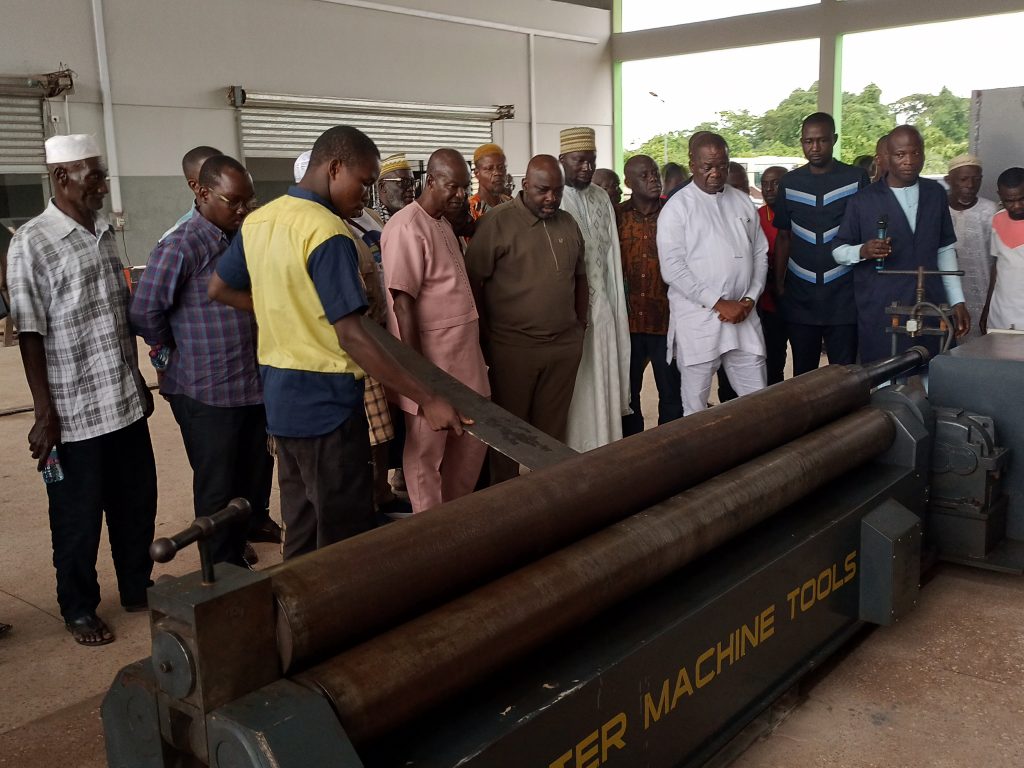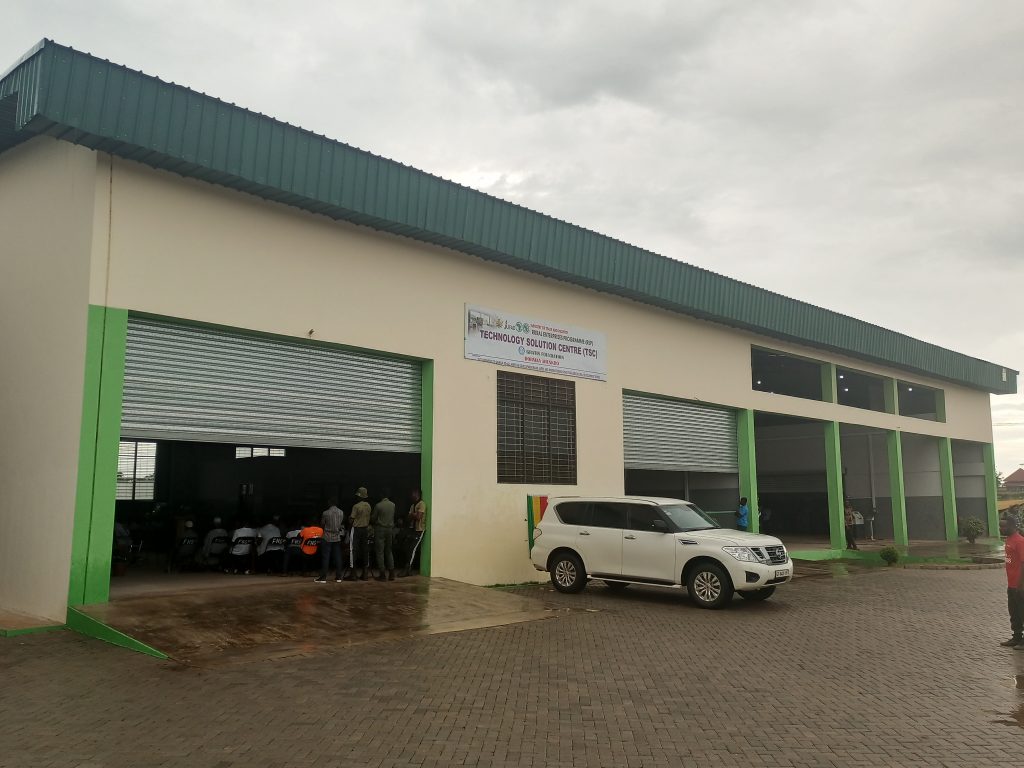By Benjamin Akoto
Dormaa Ahenkro (B/R), July 13, GNA – Mr Michael Okyere Baafi, a Deputy Minister for Trade and Industry has inaugurated and tasked the Dormaa-Ahenkro Technology Solution Centre (TSC) to provide modern and efficient technology support services to boost government’s rural industrialisation agenda.
Speaking at a mini-durbar for the inauguration at Dormaa-Ahenkro, Dormaa Central Municipality of the Bono Region, Mr Baafi said that would translate into promoting local economic stability to enhance the livelihoods of the populace.
He explained in the era of globalization and rapid technological advancement, it was crucial to recognise that access to technology support, spare parts and maintenance was not a luxury, but a necessity for factories.

Mr Baafi said the Centre directly impacted the factories’ ability to remain competitive, adapt to changing market dynamics and meet customer expectations, saying without those vital support systems, factories risked falling behind, facing production disruptions, and losing their edge in the market.
The Centre, established at a cost of more than GhC6 million was completed and handed over on Wednesday, March 3, 2021, and jointly funded by the Government of Ghana, the International Fund for Agricultural Development (IFAD) and the African Development Bank (AfDB).
The TSC is a technical workshop equipped with metal machines to develop and promote appropriate technology to Micro, Small and Medium Scale Enterprises (MSMEs), spare parts production and technical training.
He said it was in recognition that technology support, spare parts and maintenance services were indispensable elements in the functioning of modern factories that necessitated the Ministry of Trade and Industry to introduce the concept of TSCs through the Rural Enterprises Programme (REP).
Mr Baafi said the availability of spare parts was paramount for factories to sustain their operations, saying machines and equipment were prone to wear and tear over time as occasionally components might either fail or become obsolete.
“In such instances, quick access to spare parts becomes critical to avoid prolonged downtime. This does not only minimizes the impact on production schedules but also prevents the potential loss of revenue and customer dissatisfaction”, he indicated.
Mr Baafi announced to ensure the long-term sustainability of the TSCs, “we are in the process of recruiting a private sector operating firm under a franchising arrangement with GRATIS Foundation serving as the franchisor on behalf of the Government to ensure the sustainable operations of the Centre to serve its intended purpose on a long term basis.”
Mr Kwasi Attah-Antwi, National Director of the REP said 21 TSCs were established as Rural Technology Facilities (RTF) under the REP Phases One and Two between 1995 and 2011.

He stated the REP, under the current phase, had adopted five RTFs which had been rehabilitated, retooled, and rebranded together with the 21 existing RTFs as TSCs in support of the National Industrial Transformation Agenda of the Government.
The REP, Mr. Attah-Antwi added had established five new and bigger versions of the TSCs nationwide, bringing the total number to 31.
He explained the RTFs were established to serve as magnets for industrial activity and were equipped to perform as hubs for technology promotion, dissemination and transfer to the informal sector and provide skills training to master craft persons and apprentices and train beneficiaries on the use and maintenance of agro-processing equipment at various sites.
GNA